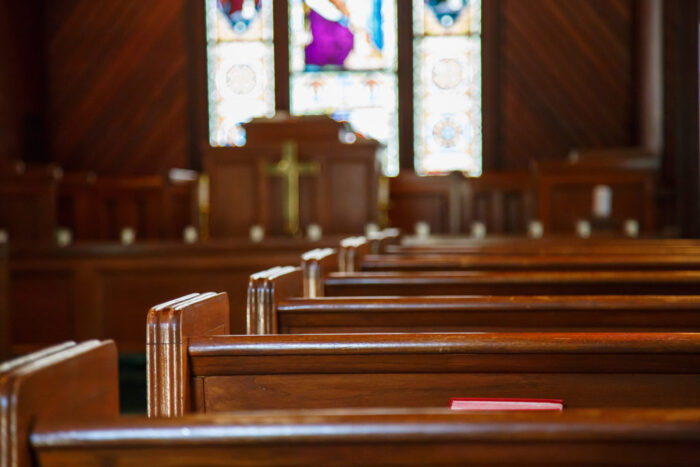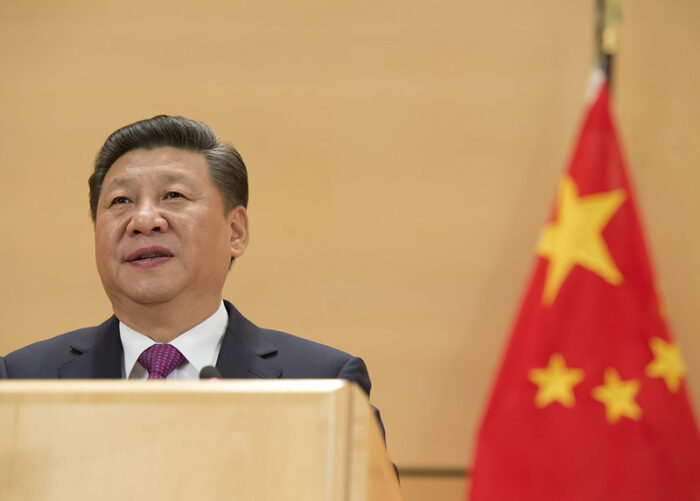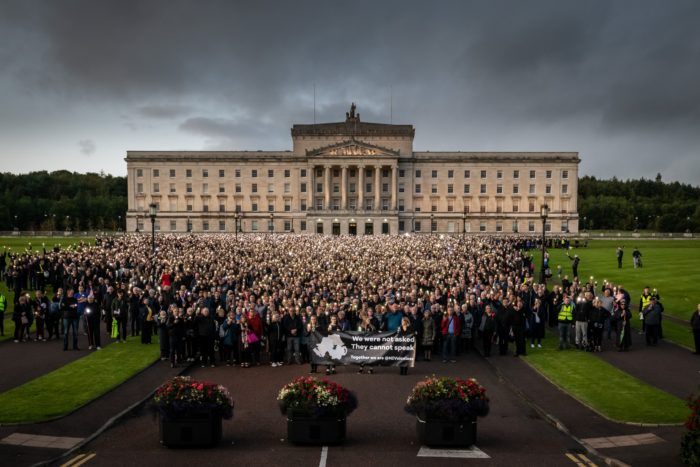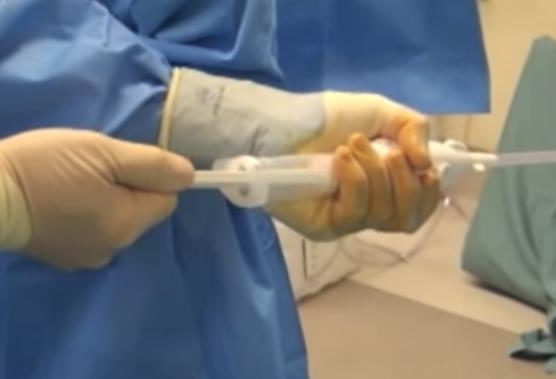
The ban on public worship due to Covid-19 in Scotland has been challenged in Court by a Glasgow priest. Scottish worshippers currently face criminal penalties for going to Mass or religious services, other than weddings or funerals, in contrast to their English neighbours who can attend with safety measures in place.
Father Tom White, a priest of the Archdiocese of Glasgow and the Dean of the City East St Alphonsus Church in Glasgow, is leading this effort as part of the Catholic community in making the case for churches as an essential service during a time of societal crisis.
“As a priest, I have witnessed first-hand the grief and suffering that Covid-19 has caused for my parish members. Therefore I know, as a priest, that we need to open my church to be able to support them best in their hour of need,” said Father White.
“I speak for many in the church when I say that it’s very important to keep people safe and well during this pandemic. But, this can and should be done while also allowing people to fulfil their need to draw close to God and worship in community at the church. With appropriate safety measures, we can accommodate both of these outcomes,” he continued.

More than 50 Irish faith leaders have signed a statement condemning the persecution of the Uighurs and other Muslims by the Chinese Communist Government.
The signatories said: “As religious leaders and leaders of belief-based communities in Ireland, we join with our counterparts in Britain and elsewhere in affirming human dignity for all by highlighting one of the most egregious human tragedies since the Holocaust: the potential genocide of the Uighurs and other Muslims in China.”
The group said they had “seen many persecutions and mass atrocities. These need our attention. But there is one that, if allowed to continue with impunity, calls into question most seriously the willingness of the international community to defend universal human rights for everyone – the plight of the Uighurs.”

A number of pro-life groups have welcomed a new Bill introduced to the Northern Ireland Assembly that would prohibit abortion up to birth in situations where an unborn baby is diagnosed with a non-fatal disability such as Down syndrome.
The Iona Institute NI spokesperson Tracey Harkin said it is “chilling” that currently “babies with disabilities including Down syndrome, cleft palate and club foot can be selected for abortion up to birth”.
“The proposed new Bill . . . is an important first legislative step towards pushing back against the worst extremities of the abortion regime forced upon us by the Westminster government”.
“The United Nations Committee on the rights of people with disabilities (UNCRPD) have on numerous occasions criticized countries like the UK whose abortion laws facilitate disability discrimination.”
Eilís Mulroy of the Pro Life Campaign said, if passed, the bill won’t undo all the damage caused by the new abortion law imposed on Northern Ireland by Westminster but “it will at least end the very obvious discrimination contained in the current law against people with a disability”.
The passage of Paul Givan’s Bill would also “send a strong message that it is never acceptable to single out particular categories of people and try to justify ending their lives based solely on their disability”.

Families in France have united to call for parental rights to be protected in the face of Government moves to ban homeschooling.
The French government announced the intention in a statement delivered in October, citing the fight against “separatism” as the basis for the controversial move. The proposal would also place new restrictions on the independence of private schools. Such action would severely curtail rights that have not only been upheld in French national law since 1882, but also are affirmed in international human rights law.
“International law recognizes the right of parents to direct the upbringing and education of their children. Children are born to parents, not the state, and it should be parents who make decisions about how to best raise their children,” said Jennifer Lea, legal counsel for ADF International in Strasbourg.
“Every child is unique and a one-size-fits-all approach to learning undermines the investment in the next generation. Homeschooling can bring enormous benefits to children – for example, those with exceptional gifts in music, dance, or athletics, and who need extra time to hone their skill; or children who perhaps struggle to learn at the pace of a busy classroom, and require more one-on-one attention,” she continued.
The US is considering introducing a monthly child benefit for the first time in what would be a seismic political shift for the country. Ireland has paid a monthly child benefit for many years.
Democrats are hoping to include the measure – which could pay up to $300 (€249.08) per month per child – as part of a larger coronavirus spending package.
President Joe Biden’s spokeswoman this week repeated that the current plans are focused on “emergency funding” rather than a more permanent shift.
But anti-poverty advocates, who have pushed for a monthly benefit for years, hope inserting such a programme temporarily will lay the groundwork for more lasting change.
Conservatives thinkers have also put forward their own proposals for a monthly child allowance, such as Senator Mitt Romney, who see the idea as a family-friendly policy – and a defence against America’s falling birth rate, which has hit a record low.
“If we don’t do more to help families … we’re just not going to have that many of them and I think, at least for social conservatives, that’s a cause for concern,” says Brad Wilcox, senior fellow at the Institute for Family Studies, pointing to rapid increases in child-related expenses like education.

The leaders of secular-oriented advocacy organisations in the US are concerned with President Joe Biden’s religious rhetoric even as they celebrate his policies.
“So far, we’re delighted with the actions,” said Rachel Laser, head of of Americans United.
But Biden’s words that have rankled many in the secularist community, particularly his habit of infusing many important decisions and ceremonies with faith. His inaugural address, besides reprising language from his campaign about “the soul of America,” cited the Bible’s 30th psalm, invoked the fifth-century theologian Augustine — whom the president, a Catholic, called “a saint of my church” — and suggested faith is key to American unity.
In addition, Annie Laurie Gaylor, co-founder and co-president of the FFRF, said her inbox was “flooded with complaints” from her group’s members when, the day before his inauguration, Biden included Cardinal Wilton Gregory, the Catholic archbishop of Washington, in a ceremony commemorating the hundreds of thousands of Americans who have died due to the pandemic caused by the novel coronavirus.
She noted that at the ceremony, held at the Lincoln Memorial, a nurse from Michigan offered the Christian hymn “Amazing Grace.”
“For our membership, for nonreligious and non-Christian individuals, it was utterly spoiled,” Gaylor said of the service.
FFRF, which claims more than 30,000 members, sent a letter to Biden in the run-up to the inauguration asking him not to include a prayer in the proceedings.
Sarah Levin, program director for Secular Democrats of America, said that if prayer or invocation must be part of public celebrations — such as the interfaith prayer service held the day after the inauguration — secular voices should be included. “I worry that this administration’s idea of interfaith outreach may tend to exclude nonbelievers,” she said.

Consultants in palliative medicine have expressed concern about the assisted suicide bill before the Oireachtas.
Dr Sarah McLean of St Vincent’s Private Hospital and Blackrock Clinic says the Bill is “deeply flawed” and lacks adequate safeguards. Without these protections, society’s most vulnerable risk being pressurised into seeking assisted suicide, she says.
The Bill’s definition of what constitutes a terminal illness is too broad, adds Dr McLean, a member of the Irish Palliative Medicine Consultants’ Association (IPMCA). “There’s no proper oversight or scrutiny.”
IPMCA chair Dr Feargal Twomey, a consultant in palliative medicine at Milford Hospice in Limerick, says “every clause” in the proposed legislation has “significant weaknesses” and that the Bill “is poorly constructed and leaves the population open to significant risk”.
“The Bill, as it stands, is very open to significant misuse and abuse and encompasses any person in Ireland who has any chronic condition,” says Dr Twomey, who is also the Royal College of Physicians Ireland (RCPI) spokesperson on physician-assisted dying and euthanasia.

There is “very little consensus” on what should replace the article in the Constitution about a mother’s role in the home, the Citizens’ Assembly has heard.
Gender equality is the theme of a series of meetings and the issue of Article 41.1 on the family was debated for the second time on Saturday.
The Constitutional Convention in 2013 recommended amending Article 41.2 to make it gender-neutral, and recognising the importance of care work and providing for a reasonable level of State support for carers.
Dr Laura Cahillane, a senior lecturer in the School of Law in Limerick, said the original Article 41.2 conferred no benefit and “quite possibly the replacement provision might have the same place”.
She said the original provision has no use in law. The implication that the article might confer some financial obligation towards women was never tested. It was only raised in one case, which was unsuccessful.

People with learning disabilities have been given ‘do not resuscitate’ orders during the second wave of the pandemic in the UK.
This comes in spite of widespread condemnation of the practice last year and an urgent investigation by the care watchdog.
Mencap said it had received reports in January from people with learning disabilities that they had been told they would not be resuscitated if they were taken ill with Covid-19.
The Care Quality Commission said in December that inappropriate Do Not Attempt Cardiopulmonary Resuscitation (DNACPR) notices had caused potentially avoidable deaths last year.
DNACPRs are usually made for people who are too frail to benefit from CPR, but Mencap said some seem to have been issued for people simply because they had a learning disability. The CQC is due to publish a report on the practice within weeks.
The disclosure comes as campaigners put growing pressure on ministers to reconsider a decision not to give people with learning disabilities priority for vaccinations.

Among other things, the lobby group want to end the 12-week limit for abortion on request, an end to the mandatory three-day waiting period; telemedicine (allowing people to order and take all abortion pills at home) to continue permanently after the pandemic emergency period ends; repeal of conscientious objection; a ban on protests or vigils outside centres where abortion takes place.
As part of the campaign, they have initiated an online survey to gather information from people who have had, or tried to have, an abortion in Ireland since January 2019, when abortion here was legalised. In 2019, 6,666 abortions took place here. The data gleaned from the survey will be used to influence the review.